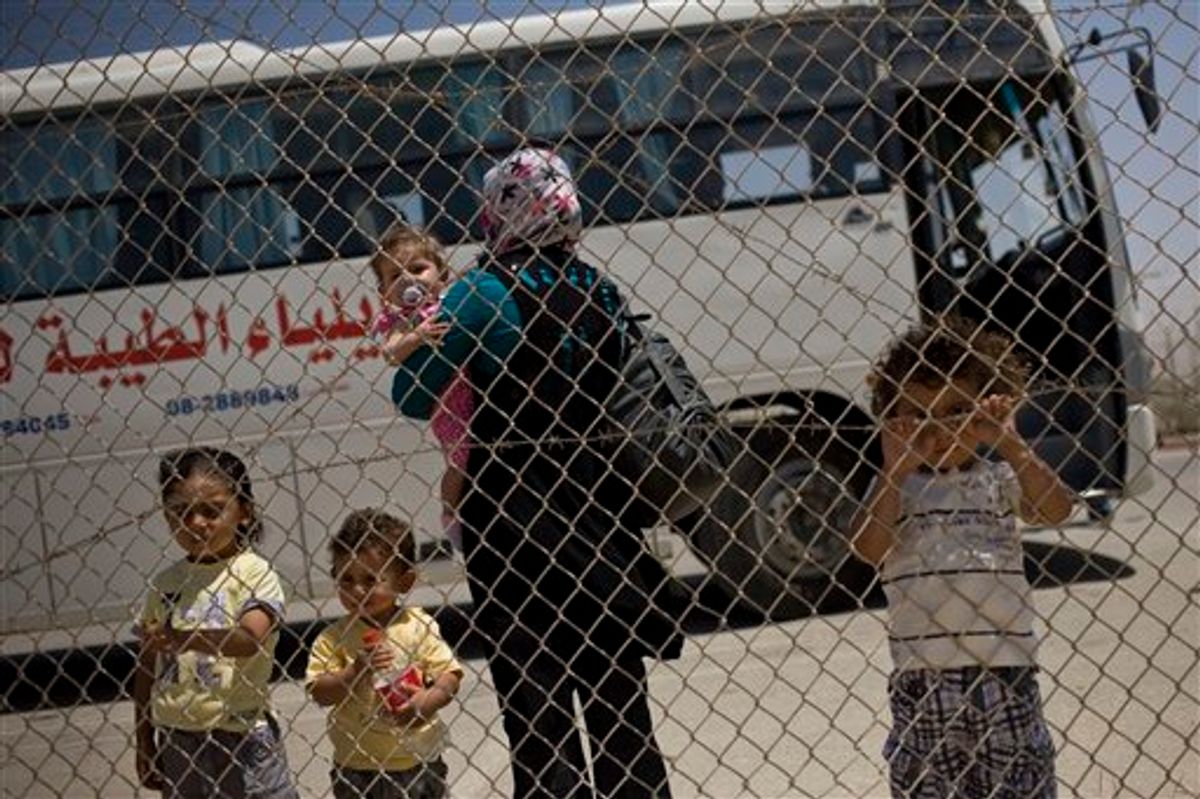A new report from a U.N. aid agency specifically blames Israeli actions for economic turmoil in Gaza. The U.N. Relief and Works Agency for Palestine Refugees (UNRWA) paints a grim picture in its report titled "Labor Market Briefing, Gaza Strip" (PDF).
From the time Israeli sanctions began in 2006 up until the second half of 2010 (when the statistics for the report were compiled), real wages fell in Gaza by 35.4 percent. The unemployment rate, meanwhile, stood at 45.2 percent. as of last summer, one of the worst marks in the world.
"It is hard to understand the logic of a man-made policy which deliberately impoverishes so many and condemns hundreds of thousands of potentially productive people to a life of destitution," Chris Gunness, an UNRWA spokesperson, said in a statement.
"These are disturbing trends and the refugees, who make up two-thirds of Gaza's 1.5 million population, were the worst hit," Gunness said.
Israel has always pointed to weakening Hamas as the impetus for its blockade of Gaza, which began with sanctions following the Islamist group’s victory in legislative elections in 2006. The U.N. report, however, questions the validity of this defense.
The Hamas-run public sector is one of the only areas of the Gazan economy that is growing, with the number of state jobs having increased by 20 percent since 2007. Because of this, Hamas' strength in Gaza seems to have been cemented, not crumbled.
"If the aim of the blockade policy was to weaken the Hamas administration, the public employment numbers suggest this has failed," Gunness said.
More recently, as the Guardian notes, "Gaza's pressure cooker atmosphere has been relieved since the fall of Egyptian president Hosni Mubarak this year and a change in policy by Cairo, a party to the blockade with Israel, which now opens the southern border crossing at Rafah daily for civilian traffic, though not for trade."
Nonetheless, the current state of the blockade ensures that economic hardship will not significantly ease up in Gaza.



Shares